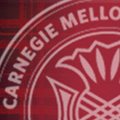Ideas for Transforming CMU Proliferate Strategic Plan Meeting

By Mike Yeomans
More ideas about where Carnegie Mellon should be headed and what the CMU experience should be like in the next 5-10 years flowed from the standing-room-only strategic plan town hall meeting on Jan. 28.
Some of the suggestions included: providing alumni lifelong access to CMU courses; replacing lecture halls with collaborative learning spaces; requiring undergraduates to spend at least one semester abroad; identifying flexible new ways to engage industry and nonprofits with CMU research; and limiting students' ability to overload on credits to reduce the "stress culture" and promote learning opportunities outside the classroom.
A presentation documenting the initial recommendations from the three focus areas — Transformative Teaching and Learning; Transformative Research, Creativity, Innovation and Entrepreneurship; and the Transformative CMU Experience — is available on the strategic planning website: www.cmu.edu/strategic-plan.
In addition to the town halls, you can send your comments and suggestions via email to strategic-plan@andrew.cmu.edu.
Transformative Teaching and Learning
Richard Scheines, dean of the Dietrich College of Humanities and Social Sciences, and Interim Provost Nathan Urban, put forward two recommendations for discussion.
The first is providing incoming freshmen with themed interdisciplinary experiences that can be followed later by collaborative interdisciplinary research, perhaps on the same topic. The themes could include subjects in which CMU has developed world-class expertise, such as sustainable energy, immigration, cybersecurity and privacy.
Ubran introduced the idea of lifelong alumni access to CMU coursework, which he dubbed "the degree with a long tail." He said this would make CMU graduates even more attractive to employers than they already are. He also suggested providing access to CMU courses to high school students.
Scheines, who focuses on the science of learning, also suggested better leveraging the university's vast learning science ecosystem to create a "superior residential experience" at CMU by improving infrastructure and support for faculty to collaborate with learning scientists.
Such an approach could also lead to a change in CMU's physical structure, Urban said.
"The classroom of the future may not be a classroom at all," he said, but rather more collaborative learning spaces, such as those created for the Integrative Design, Arts & Technology (IDeATe) program at Hunt Library.
Transformative Research, Creativity, Innovation and Entrepreneurship
James Garrett, dean of the College of Engineering and co-leader of the focus area, put forward four broad recommendations for further development:
- Create mechanisms to stimulate meaningful bottom-up collaboration between faculty, staff and students with diverse disciplinary backgrounds;
- Identify and implement new flexible ways to work with the private sector and with nonprofits;
- Increase opportunities and ease for connecting with non-traditional expertise on campus; and
- Establish support and infrastructure to coordinate and compete effectively in large center-level activities.
Noticing the strong focus on interdisciplinary collaboration, Psychology Professor Sharon Carver suggested the university consider changing its policy of admitting students via colleges.
"We may be losing students to universities that have a more flexible admission process," she said.
The Transformative CMU Experience
Dean of Student Affairs Gina Casalegno asked how CMU could better balance its culture of hard work with meta-curricular learning experiences and quality of life activities.
Vice Provost for Education Amy Burkert commented that CMU's liberal overload and late withdrawal policy could be contributing to a "stress culture" that impacts faculty and students.
"There is social recognition for taking lots of classes here," said student Julia Eddy. "There is pressure to take classes and get grades for your future career. My heart goes into work outside of class, but I don't think it is as valued as coursework. That should change."
The meeting closed with a discussion of Diversity and International Strategy.
Interim Executive Vice President John Lehoczky said that as CMU seeks to engage "world talent" it must do a better job of recruiting and retaining underrepresented minority and women faculty, students, staff and university leaders.
Professor Volker Hartkopf of the School of Architecture said the university should be creating more connections to minority neighborhoods in Pittsburgh that engage young people and their families with CMU.
History Professor Jay Aronson suggested looking to the success of Freeman Hrabowski, president of the University of Maryland, Baltimore County, who has demonstrated remarkable success in promoting support for minority students and faculty in science and engineering.
New Vice President for International Programs and Strategy Jimmy Hsia, stated that strengthening the university's international presence is necessary for CMU's survival as an elite global institution.
One student suggested establishing a global co-operative that gives every student the opportunity for a study abroad experience.
Student Andrew Schwartz said the university must do a better job of promoting the integration of international students with domestic students.
"We interact with our own national groups. I would have to say that CMU did not prepare me to engage with other national groups," he said.
Additional town halls specific to faculty and staff were held Feb. 3. About 200 staff members turned out in McConomy Auditorium and addressed concerns primarily around employee training, information technology systems and diversity.
More Town Halls Scheduled
The focus area leaders will be digging deeper into their initial recommendations at focus-area specific town hall meetings from 4:30 - 6 p.m. at the Posner Center. All three forums will be webcast live on the strategic planning website.
- Feb. 11 - The Transformative CMU Experience
- Feb. 17 - Transformative Research, Creativity, Innovation, and Entrepreneurship
- Feb. 18 - Transformative Teaching and Learning
